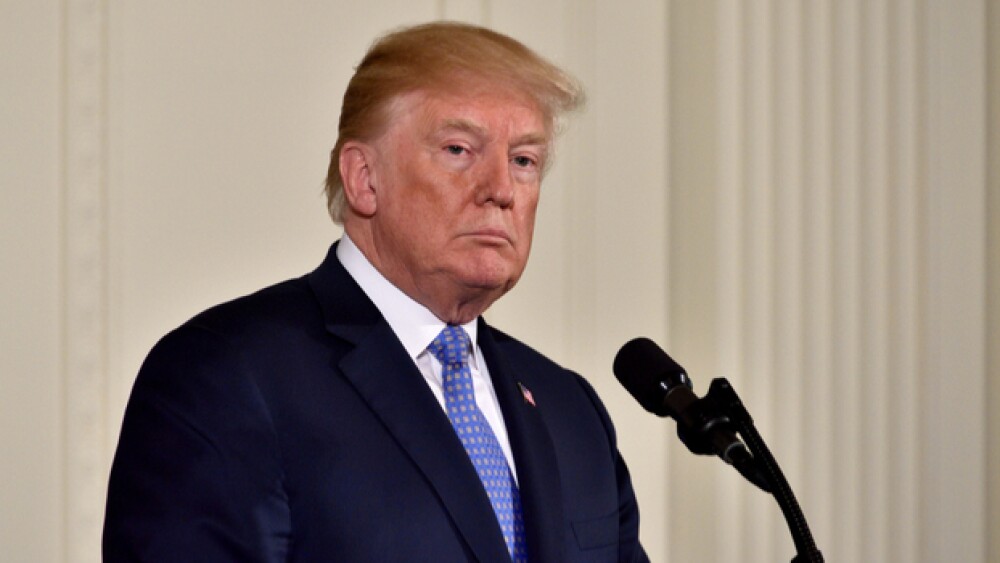President Trump’s new trade deal, now called the U.S.-Mexico-Canada Agreement, is wending its way before Congress. With that, the details are coming to light, and many critics of the biopharmaceutical industry and generic drug policy aren’t happy.
Evan El-Amin / Shutterstock
President Trump’s new trade deal, now called the U.S.-Mexico-Canada Agreement, is wending its way before Congress. With that, the details are coming to light, and many critics of the biopharmaceutical industry and generic drug policy aren’t happy.
In November, 29 organizations sent a letter to U.S. Trade Representative Robert E. Lighthizer that said, in part, “This trade agreement, if left in its current form, will keep drug prices high in the United States to the detriment of our nation’s patients, job creators, workers, and taxpayers. Furthermore, several provisions within the agreement are inconsistent with U.S. law and, if left unchanged, could lead to inappropriate modifications to U.S. law or cause the United States to be in violation of the agreement on day one of its enactment.”
The letter was signed by a range of organizations, including the AARP, Academy of Managed Care Pharmacy (AMCP), American College of Physicians, Blue Cross Blue Shield Association, Kaiser Permanente and others.
With Democrats taking control of the House of Representatives in January, they are expected to demand revisions to the deal in order to win approval. The sections regarding drugs will be one of several sections targeted.
Rep. Jan Schakowski (D-Ill.), told USA Today, that the deal if approved, “would not only raise drug prices in Canada and Mexico but would tie Congress’ hands, preventing us from enacting essential reforms needed to lower prescription drug prices.”
U.S. law gives pharmaceutical companies 12 years of market protection for branded drugs against generic competition. Canada gives its drug makers eight years of market protection and Mexico offers five years.
The new trade deal gives drug companies a minimum of 10 years of market exclusivity. One thing that makes this an interesting argument for U.S. politicians is that it won’t affect the generic timelines for U.S. citizens, but will increase the waiting period for generic copies for residents of Canada and Mexico.
Jay Taylor, vice president of international advocacy for the Pharmaceutical Research and Manufacturers of America (PhRMA), told USA Today, “When the U.S. and other countries protect innovation, it leads to the discovery of more new medicines, better health outcomes and increased competition. There needs to be a balance between encouraging competition and incentivizing innovation—and we think the (new trade deal) is a positive step in the right direction toward ensuring balance abroad for the biopharmaceutical sector.”
The organizations that sent the letter argued that the proposal will slow biosimilar development and harm generic drug competition in the U.S. “We are deeply concerned that the 10-year brand-name biologic exclusivity provision proposed in the USMCA, as well as the other barriers it adds to generic and biosimilar competition, will slow the development of biosimilars and limit patient access to more affordable medicines,” the letter stated.
In October, after the USMCA negotiations were concluded, Sam Waksal, founder and former chief executive officer of biopharma company ImClone Systems, told FOX Business, “America really subsidizes our pharma industries. In another way, it kept the patented product intact, so there is no biosimilar competition for an extra period of time in both of those countries. That’s a big deal for America.”
On the one hand, the USMCA, which replaces the North American Free Trade Agreement (NAFTA), is, in part, protecting the interests of the U.S. biopharmaceutical industry—and part of the goal of trade agreements is to do exactly that, protect the interests of U.S. companies. On the other hand, the biopharma industry is under constant criticism for high prices and what some consider to be unfair trade practices. The USMCA, and NAFTA before it, attempt to balance these sometimes competing interests.
With the potential presidential candidates just starting to announce their interest in running and beginning to raise campaign funds, drug pricing is expected to be another hot-button election topic. Senator Elizabeth Warren (D-MA), in a December 17 Washington Post op-ed, for example, proposed The Affordable Drug Manufacturing Act, which would allow the Department of Health and Human Services (HHS) to manufacture or contract out the manufacture of generic drugs.





